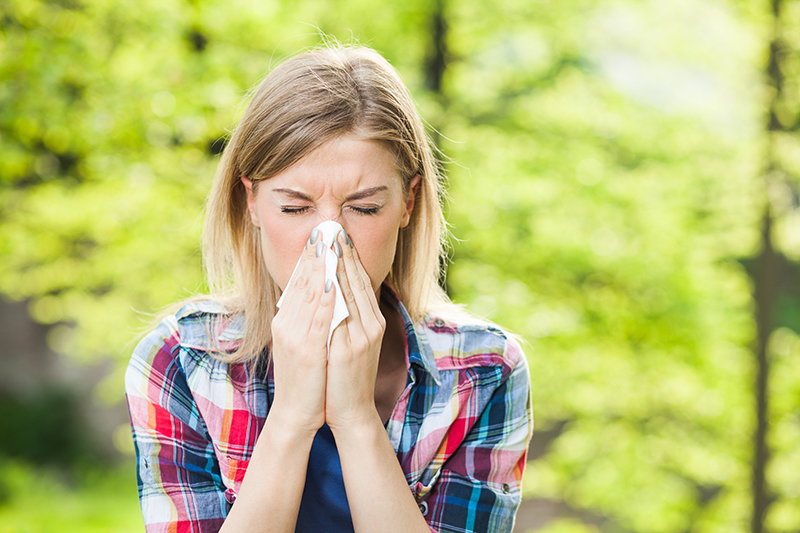By Dr. Jesika DiCampli,
Health for Life Naturopathic Medicine
What is an allergy? Allergy happens when the immune system reacts abnormally to certain substances that the body sees as “foreign” due to hyper sensitization. The substances that can cause allergy are varied and many. Seasonal reactions from pollen and dust, food, insect stings, or medications are among some of the common offenders.
A Multitude of Symptoms
Symptoms of allergy can be severe or mild and from specific to widespread. Some common symptoms are sneezing, itchy/watery eyes, cough/asthma, nasal congestion, and runny nose. However, the symptoms can present in other organ systems as well. In skin, these symptoms can be dermatitis, hives, swelling, rash, and itchiness while gastro complaints can include stomach pain, constipation, diarrhea, bloating, nausea, vomiting, and reflux. When an allergic reaction occurs, allergens bind to antibodies, causing the body to produce IgE. Antibodies combat foreign and potentially harmful substances in the body by releasing mast cells and a chemical called histamine that causes the symptoms of allergy. If symptoms become severe, anaphylaxis can develop. Anaphylaxis is a medical emergency and can be life threatening. It can develop quickly, with symptoms appearing within minutes of the exposure to an allergen.
Testing
Because the symptoms of allergy are broad and general, it can be very difficult to determine what exactly is causing the allergic condition. It is imperative to have thorough and appropriate testing. The following tests are comprehensive and include non-traditional ways to evaluate allergy and heal the body.
• Blood testing is simple, accurate, and a quick way to determine triggers and identify allergens that may contribute to allergy. Blood tests can include:
- IgE and IgG food allergy testing (over 100 items): A few common food allergens: dairy/milk, wheat/gluten, eggs, nuts, soy, shellfish, citrus.
- IgE inhalant allergy testing: Tests for pollens (tree, weeds, grasses) and dust, mold and animal allergies.
- Micronutrient testing: An example of a few of the nutrients tested that impact or are deficiencies in allergy: B vitamins, essential fatty acids, vitamin D and A, minerals, amino acids, and antioxidants.
• Skin testing is common and helpful for some people but does not give the entire picture.
Treatment
Allergy treatments historically consisted of avoidance techniques and medications. However, there are other options that provide long, lasting relief and quality of life improvement.
• Natural Elimination of Allergy Treatment (NEAT) is a safe, non-invasive, and effective way to rid your body of over 1,000 sensitivities including chemicals, metals, foods, pollens, animals, etc. The protocol utilizes principles of kinesiology, TCM/acupuncture, and isopathy.
• Advanced NASA grade air scrubbing filter can help to provide a clean indoor air environment and refuge.
• Supplements: Vitamin C, bioflavanoids, homeopathics, essential fatty acids, and gastrointestinal support.
• Diet: Several servings of the rainbow of fruits and vegetables rich in anti-inflammatory antioxidants and vitamins that are necessary for proper immune response and regulation.
For more information regarding allergies and your options, give Dr. DiCampli a call to be on your way to an allergy-free life at and visit HealthForLifeND.com.





